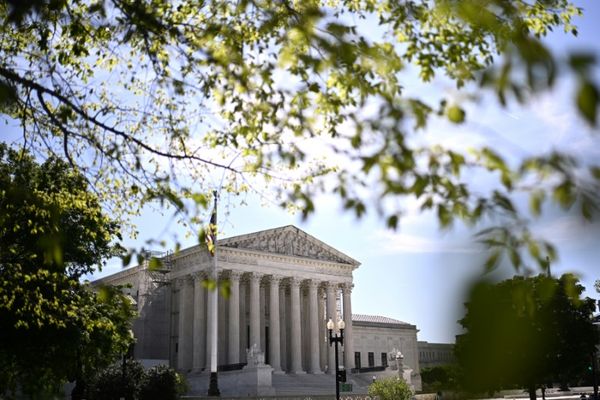There are 19 new Covid cases in New Zealand's managed isolation facilities today - including six cases of the rapidly spreading UK virus strain.
"The six cases, five of whom travelled from the United Kingdom and one who travelled from South Africa, arrived into New Zealand between 13 and 25 December and underwent routine testing in managed isolation as part of routine surveillance testing or because they developed symptoms," the Ministry of Health said.
"Once confirmed positive they were transferred to the Auckland quarantine facility. Four of these cases are now recovered and, after a final health check, were able to leave the facility."
The new variant was identified in England in early December and UK Health Secretary Matt Hancock revealed on December 14 that its numbers were "increasing rapidly".
In reaction to the spread of the new Covid strain, the UK government implemented its highest level of restrictions on December 20, and over 50 countries have since banned any flights to or from Britain, including the Netherlands, India and Canada.
/cloudfront-ap-southeast-2.images.arcpublishing.com/nzme/7U2YH63NMXFKGIJHSEFGMPYAFM.jpg)
NZ's Government announced today that all travellers from the UK or US would require a pre-departure test from January 15, in addition to existing isolation and testing measures on arrival.
Here's what scientists know about the UK Covid strain:
What is the mutation and how dangerous is it?
The variant - called 'VUI – 202012/01' - carries a set of mutations including an N501Y mutation to part of the genetic sequence which forms the spike protein - little grippy rods that attach to human cells. Any change in shape of the spike protein could make it more difficult for the immune system to spot. The virus uses the spike protein to bind to the human ACE2 receptor.
UK Government scientists are studying it but there is no evidence to suggest it is more likely to lead to serious illness. However if it can bind more easily to human cells, it may spread quicker and people could end up with a higher viral load.
UK Government scientist Professor Lawrence Young, who is also a molecular oncology expert, said the new variant does "two things" which make it more transmissible.
The Warwick Medical School academic said: "One is it's getting into the body more efficiently and it looks like that's because this change which has occurred in the spike protein increases the strength of the interaction of the virus with cells in our bodies - it increases the stickiness, if you like.
"There's also data reported last week from Nervtag [the UK Government's New and Emerging Respiratory Virus Threats Advisory Group] and it looks like where you do see this virus infection individuals are making more of it as well - there are higher virus loads in the throat."
Scientists have said the mutated coronavirus strain could more easily infect children, and Professor Young added that preliminary research suggests this is also due to its "stickiness".
He said children have fewer of the receptors which picked up the older coronavirus variant, meaning they were less likely to catch it, but the new variant "might compensate for lower levels of that receptor or that door to the virus in children by being stickier".
There is currently no evidence that this variant - or any other studied to date - has any impact on disease severity.
Professor Neil Ferguson, speaking at a Q&A with experts from Nervtag, said there was strong evidence the new mutant strain was 50 per cent more transmissible than the previous virus.
Professor Calum Semple, a member of the Sage scientific advisory group, told Sky News that the new variant of Sars-Cov-2 could become the dominant global strain as it had an "evolutionary advantage in transmitting more quickly".
What are the symptoms of the new strain?
At the moment, it seems the symptoms are the same as the more familiar strain. The variant was spotted through polymerase chain reaction (PCR) tests which are usually only given to people with traditional symptoms of the virus, so we can assume the symptoms are identical.
How was it picked up?
UK Government scientists have been carrying out random genetic analysis of around 10 per cent of PCR tests and spotted the new mutations in December.
The Covid-19 Genomics UK (Cog-UK) Consortium tracks new genetic variants as they spread and investigates if these changes lead to detectable changes in the behaviour of the virus or the severity of Covid-19 infections.
How many cases have been found and where are they?
Matt Hancock said the highly transmissible coronavirus variant makes up the majority of new cases in the UK.
Professor Peter Horby, chairman of the New and Emerging Respiratory Virus Threats Advisory Group (Nervtag) has stated that the variant started from one person in Kent and could have been caused by "random errors" when the virus copies.
The variant likely originated in this patient, as they may have a weakened immune system which was struggling to beat the virus. Therefore, instead of destroying the virus, they became a breeding ground for the virus to mutate.
Reports have also found that non-British nations are currently spreading this UK variant of coronavirus across Europe.
This comes after French health officials confirmed the variant was found in a patient on the morning of December 26.
Meanwhile, Northern Ireland shared its first case on December 23, and German officials revealed the variant had reached their nation on Christmas Day.
South Korea detected the virus variant in three individuals from a London-based family who arrived in the country at the end of December.
The US reported its first cases last week - in Colorado, California and Florida.
Is this the first mutation found?
No. Coronaviruses mutate frequently and many thousands of mutations have already arisen in the SARS-CoV-2 genome since the virus emerged in 2019.
As early as March 2020, scientists had already discovered the virus has evolved into two major lineages (dubbed 'L' and 'S' types).
The older "S-type" appeared to be milder and less infectious, while the "L-type", which emerged later, spreads quickly and by mid-2020 accounted for around 70 per cent of cases.
Another variant (D614G) has also been detected in Western Europe and North America which, although it spreads more easily, does not cause greater illness.
A worrying mutation, dubbed "Cluster 5" was found in mink farms in Denmark, leading to a cull of 17 million animals.
Could it hamper a vaccine?
Possibly. Most coronavirus vaccines are targeting the spike protein, which the virus uses to latch on to human cells. The vaccines prime the body to be able to spot the spike protein so the immune system can spot the virus.
However, if the spike protein mutates, the body will no longer be able to recognise the virus and vaccines may prove ineffective.
Professor Calum Semple of Liverpool University said it is "the million-dollar question" whether vaccines will be effective against the new variant of coronavirus, but he thinks they will.
He told BBC's Breakfast programme: "Some of the mutations are occurring in the key that the virus uses to unlock the cells. And we see this with flu each year and that's why the flu vaccine has to change year on year."
He added: "I would expect the vaccine still to be reasonably effective because it's currently 95 per cent effective. Even if we dropped a few percentage points, it's still going to be good enough, and much better than many other vaccines on the market."
The chief executive of BioNTech - which has partnered with Pfizer - says the German pharmaceutical company is confident that its coronavirus vaccine works against the UK variant, but further studies are need to be completely sure.
Ugur Sahin said on December 22: "We don't know at the moment if our vaccine is also able to provide protection against this new variant", but because the proteins on the variant were 99 per cent the same as the prevailing strains, BioNTech had "scientific confidence" in the vaccine.
Sahin said BioNTech was conducting further studies and hoped to have certainty within the coming weeks.
"The likelihood that our vaccine works ... is relatively high." But if needed, "we could be able to provide a new vaccine technically within six weeks", he added.
Professor Van Tam stated on December 30 that it would take up to two weeks for scientists to confirm the AstraZeneca and Pfizer vaccines were effective against the new strains of Covid-19.
Moderna, which manufactures a different coronavirus vaccine, is also testing its jab against the faster-spreading version of the disease.
Are the experts worried?
Most scientists are downplaying this development as most mutations found so far have not proved more deadly. Some variants actually prove to be less aggressive and many die out.
Professor Tom Solomon, the director of the NIHR Health Protection Research Unit in Emerging and Zoonotic Infections at the University of Liverpool, said: "SARS-CoV-2, the virus which causes Covid-19, is evolving and mutating all the time, as do all similar viruses. Such changes are completely to be expected.
"In the UK we are doing very detailed genetic assessment of many of the virus strains detected ...
"Just because there has been a small change in the virus' genetic make-up this does not mean it is any more virulent, nor that vaccines won't be effective. Our experience from previous similar viruses suggests that the vaccines will be effective despite small genetic changes."
Dr Zania Stamataki, a viral immunologist at the University of Birmingham, added: "The emergence of different coronavirus strains a year after SARS-CoV-2 first jumped to humans is neither cause for panic nor unexpected. Mutations will accumulate and lead to new virus variants, pushed by our own immune system to change or perish.
"This virus doesn't mutate as fast as influenza and, although we need to keep it under surveillance, it will not be a major undertaking to update the new vaccines when necessary in the future. 2020 saw significant advances take place to build the infrastructure for us to keep up with this coronavirus."
However, Professor Nick Loman of the University of Birmingham said the new variant was "concerning", as there was "a strong association" with areas of high growth and there appeared to be changes in the spike protein which were "quite likely" to influence the virus' behaviour.







